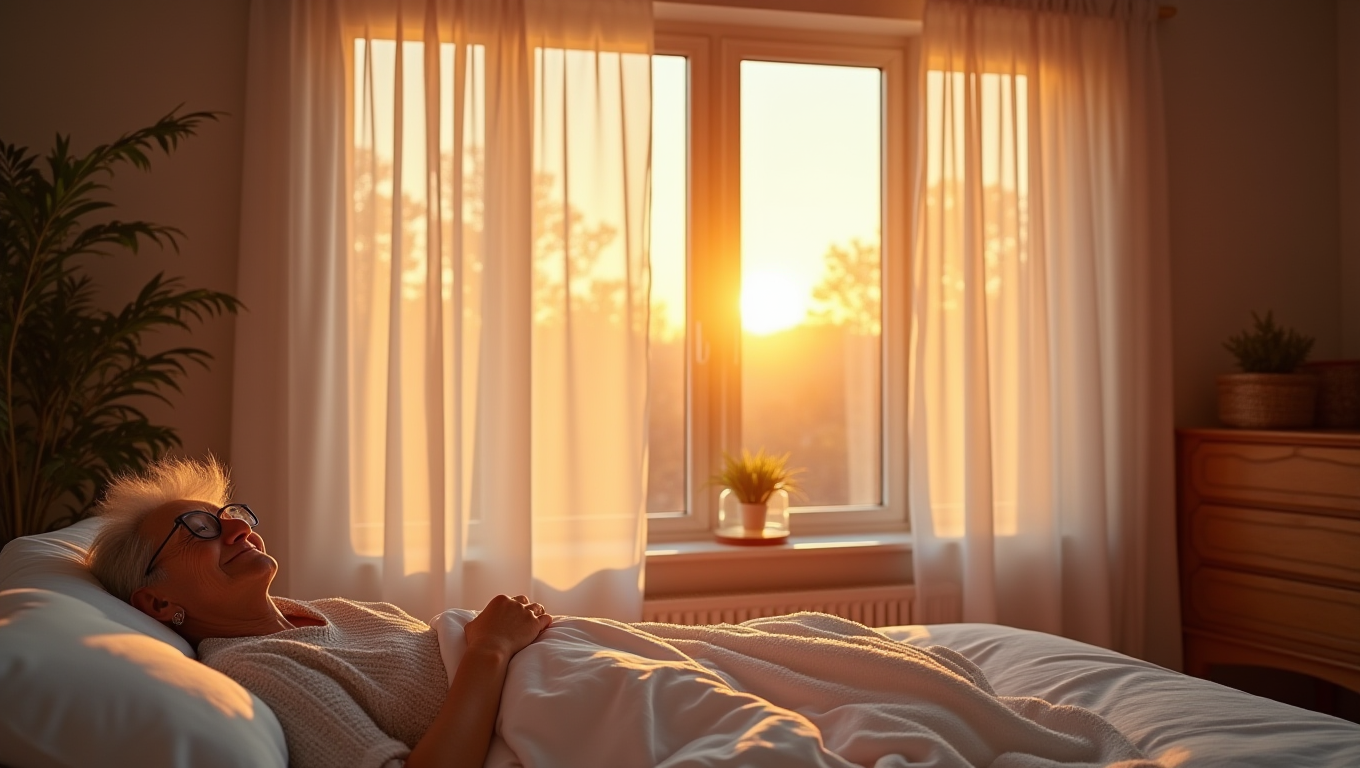Sleep is essential for everyone, but as we age, achieving restful, uninterrupted sleep often becomes more challenging. Many seniors experience sleep-related issues such as insomnia, disrupted sleep cycles, or difficulty staying asleep through the night. Poor sleep can affect mood, memory, and overall health, making it critical to find solutions that work.
Enter Artificial Intelligence (AI)—a powerful tool that’s transforming how we understand and manage sleep. From smart devices to personalized sleep coaching, AI is making a significant difference in helping seniors improve their sleep quality.
Let’s explore why sleep is so important for seniors, the common challenges they face, and how AI can provide innovative solutions to ensure better rest.
Why Sleep Matters for Seniors
- Physical Health:
- Sleep helps repair tissues, boost immunity, and regulate hormones.
- It lowers the risk of chronic illnesses like heart disease, diabetes, and high blood pressure.
- Cognitive Health:
- Sleep enhances memory, concentration, and cognitive function.
- It may reduce the risk of Alzheimer’s and other forms of dementia.
- Emotional Well-Being:
- Proper rest improves mood and reduces stress, anxiety, and depression.
- Energy and Mobility:
- A good night’s sleep restores energy and supports physical activity, which is crucial for maintaining mobility and independence.
Common Sleep Challenges for Seniors
- Insomnia: Difficulty falling or staying asleep.
- Sleep Apnea: Interrupted breathing during sleep, leading to poor-quality rest.
- Restless Leg Syndrome: Uncomfortable sensations in the legs that disrupt sleep.
- Changing Sleep Cycles: Seniors may experience lighter and shorter sleep cycles.
- Chronic Pain: Arthritis or other conditions can make it hard to sleep comfortably.
How AI Can Help Seniors Sleep Better
AI-powered tools are designed to identify, analyze, and address sleep problems in ways that are tailored to individual needs. Here’s how AI is making a difference:
1. Sleep Tracking Devices
AI-enabled devices like smartwatches or under-mattress sensors monitor your sleep patterns, tracking metrics such as:
- Total sleep time
- Sleep stages (light, deep, REM)
- Heart rate and breathing patterns
- Movement during the night
- Examples:
- Fitbit Sense: Tracks sleep stages and provides personalized sleep scores.
- Withings Sleep Analyzer: Monitors breathing patterns and detects sleep apnea.
2. Personalized Sleep Coaching
AI apps analyze your sleep data and offer tailored advice to improve sleep quality. These suggestions might include adjustments to your bedtime routine, changes to your sleeping environment, or tips for managing stress.
- Examples:
- SleepScore: Provides actionable insights based on sleep tracking data.
- Pillow: Suggests improvements based on your sleep trends.
3. Smart Beds and Pillows
AI-powered beds and pillows adjust to your body’s needs in real-time, ensuring optimal comfort. For example:
- Smart mattresses can regulate temperature to keep you cool during the night.
- Adjustable beds can elevate your head or legs to improve breathing or reduce discomfort.
- Examples:
- Sleep Number 360 Smart Bed: Adjusts firmness and temperature for personalized comfort.
- ZEEQ Smart Pillow: Tracks sleep and plays soothing music to help you fall asleep.
4. Relaxation and Stress Management
AI-driven apps and devices provide guided relaxation exercises, breathing techniques, or sleep meditations to help calm your mind before bed.
- Examples:
- Calm: Offers bedtime stories, guided meditations, and relaxing sounds.
- Headspace: Features mindfulness exercises and sleep-specific programs.
5. Managing Sleep Apnea
AI-enabled sleep apnea devices detect breathing irregularities and provide real-time adjustments to ensure uninterrupted sleep.
- Examples:
- ResMed AirSense 10: Uses AI to adjust airflow in CPAP therapy.
- NightBalance: Monitors and corrects sleep positions to reduce apnea episodes.
6. Smart Lighting Systems
AI-controlled lights can mimic natural light patterns, helping regulate your body’s internal clock. These systems gradually dim in the evening and brighten in the morning to support healthy sleep cycles.
- Examples:
- Philips Hue: Adjusts lighting to support circadian rhythms.
- LIFX Smart Lights: Customizable lighting for relaxation and waking up.
7. Noise Management
AI-powered noise machines or apps create soothing soundscapes or white noise to block out disruptive sounds and promote deeper sleep.
- Examples:
- Sound+Sleep: Generates realistic sound environments based on AI algorithms.
- Noisli: Offers customizable sound combinations to aid relaxation.
8. Virtual Sleep Coaches
AI virtual assistants can answer questions, provide tips, and offer encouragement for better sleep habits.
- Example:
- Sleepio: An AI-powered virtual sleep coach that provides Cognitive Behavioral Therapy for Insomnia (CBT-I).
Tips for Seniors Using AI for Sleep
- Start Small: Begin with an easy-to-use app or wearable device to track your sleep patterns.
- Prioritize Comfort: Choose tools that integrate seamlessly into your routine, like smart pillows or noise machines.
- Consult Your Doctor: Share sleep tracking data with your healthcare provider to gain deeper insights into your health.
- Combine AI with Lifestyle Changes: AI tools work best alongside good sleep hygiene practices, like maintaining a consistent bedtime and avoiding caffeine before bed.
- Stay Consistent: Use the tools regularly to see meaningful improvements over time.
Conclusion
Sleep is a cornerstone of healthy aging, and AI is making it easier than ever for seniors to get the rest they need. From smart devices that monitor your sleep patterns to personalized coaching and relaxation techniques, AI tools can provide valuable insights and support for better sleep.
If you’re ready to improve your sleep, explore the wide range of AI-powered tools designed with seniors in mind. Visit CoolSenior for more tips, product reviews, and resources to help you sleep better and live healthier. Sweet dreams! 🌙


No responses yet